Ex-Call of Duty Devs Discuss Making New Multiplayer Virtual Reality Shooter
The Reload Studios team talks to GameSpot about returning to the roots of Call of Duty, and making their next shooter game for Virtual Reality hardware.
Firearms Expert Reacts to Ghost Recon Breakpoint's Guns Xbox Studio Closures Are Confusing | Spot On Gray Zone Warfare | Community Briefing Trailer #1 Senua's Saga: Hellblade II - Senua's Psychosis Feature Trailer Squirrel With A Gun - Official Announcement Gameplay Trailer Night Slashers: Remake || Official Christopher Smith Character Gameplay Trailer 15 MORE Things You STILL Didn't Know In Zelda Tears Of The Kingdom Street Fighter 6 - 8 Minutes of Akuma Gameplay (High-Level CPU) Animal Well GameSpot Review Roblox - Netflix Nextworld Official Trailer Crow Country | Official Launch Trailer Master Detective Archives: RAIN CODE Plus - Official Announcement Trailer
Please enter your date of birth to view this video
By clicking 'enter', you agree to GameSpot's
Terms of Use and Privacy Policy
Earlier this year a group of former Infinity Ward artists, producers, and developers formed Reload Studios. With a focus on virtual reality technology, the studio is working on a new shooter. To find out what would set the game apart from others in the genre and why VR is the next big thing in games, GameSpot spoke with James Chung (CEO and founder), Taehoon Oh (COO, co-founder), Pete Blumel (executive producer), and Chetan Bedi (lead game designer).
What is Reload Studios making?
Given the team's background in developing first-person shooters, it made sense for Reload Studios to stay the genre it was most experienced in. "[It's] something that our team is known for," Chung said. But that doesn't necessarily mean Reload is working on a Call of Duty clone.
"We're trying to make it visually different, so that it doesn't feel like the old Call of Duty games but something that is more unique to us," Chung explained. Reload plans to bring out an FPS focused solely on multiplayer mode, but according to the studio, the game's integration with virtual reality hardware will be what sets it apart from others in the genre. The studio is building the game from scratch with VR platforms in mind, although a version that doesn't require virtual reality hardware is also in the works.
"Our focus is on virtual reality because you can't just port or make a non-virtual reality game and expect it to work. The games on VR have to be made from the ground up. So we are making a game from the ground up to make sure it will work on VR," Chung said.
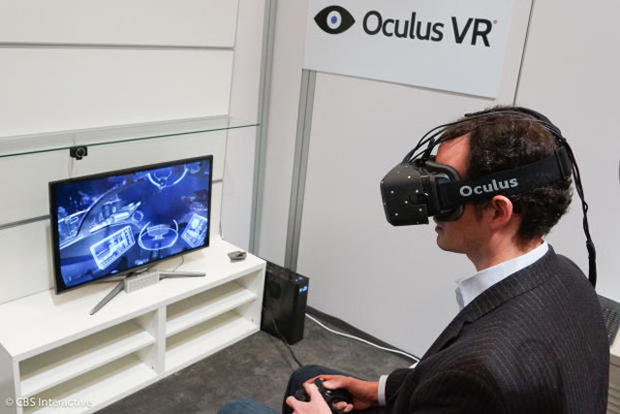
According to Chung, fans have been vocal in their want for "what Call of Duty used to be." However, he noted that striking a balance between meeting the fans' desire to return to the "roots" of Call of Duty and putting a VR spin on the FPS genre was not easy, primarily because of the challenge presented by the control scheme.
"Trying a shooter in VR is actually difficult because nobody has a solution on how to make the experience compelling, especially on the controls issue. A lot of people have a lot of points on what not to do, but not a lot of people are coming up with what to do. And that's the side that we're trying to resolve," he said.
There are also the hardware limitations that are apparent with current VR technology. The current iteration of the Oculus Rift sits at 0.97lbs (439g). It may not sound like a lot, but accounting for a user's potential inability to wear it for hours at a time is something Reload is designing its game around.
"We don't expect initial VR devices to accommodate users to play for a very long time... we're trying to come up with gameplay that is in short bursts. Obviously if the user chooses to play for a long time they can, but as far as gameplay is concerned we're cutting things out or making sure the map size is for a shorter period of time instead of hours at a time." Chung said.

This means a more compact map, resulting in what lead designer Chetan Bedi dubs, "arena-style multiplayer." When comparisons to Quake or Destiny were drawn, Bedi responded that Reload's game will be "smaller" and "more focused."
"We're not trying to say, 'Hey, we're going to do things under the kitchen sink.' We're going to do a few things really, really well, and from there we'll see where things go," Bedi said.
How will players control the movement in the VR version?
Without standardized hardware for VR, the studio is working on a control scheme around a peripheral "that will probably look like a 360 controller." Despite having familiar peripheral hardware to work with, the game may end up controlling rather differently due to its integration with VR.
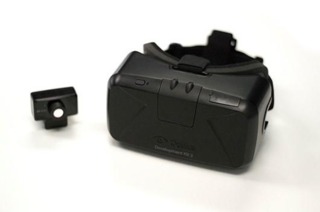
"We're not thinking you can just slap on a first-person control scheme onto your normal 360 controller and then move around. We've got to re-think the ways it controls when you're using a regular 360 controller." Bedi said
For Reload's game, that means designing a control scheme that doesn't require the user to look down at it to operate and start. The studio is confident that its solution to the problems presented by VR controls works, and that users will enjoy it once they get hands on with it.
"Those are the challenges we have but we've come a long way with them. Once you try it on you'll see what we're talking about and it's actually pretty fun."
That doesn't mean all other hardware control schemes have been ruled out--quite the opposite. The studio is keeping an open mind about integrating its game with other peripherals. "If anything takes off then yes, we will definitely be designing for those from the ground up also," Blumel said.
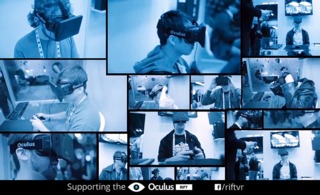
In some ways, VR technology can change the way movement in-game functions based on physical real-world limitations. For example, actions like turning very fast, sprinting, and constant jumping could translate in vastly different ways when input through VR hardware.
"As far as presence goes, we're not too concerned about it from the visual side. Just being able to look 360 degrees - there's huge immersiveness that [results] from that." Chung said. "We're not exactly trying to be too realistic about what we're doing. We're trying to have a lot more fun with the shooter genre and do something different… Our direction provides a lot of room to bend reality. We have a lot of room to work with that doesn't tie us down to what shooters used to be in the past."
Will there be cross-platform compatibility?
With the VR platform not yet hitting mainstream, Reload is keen to bring together players on all versions of the game. "Our goal is to have [the games] exist in the same ecosystem... we're still early on in our development, so we're preparing for all possibilities." Chung said. All possibilities, including the Wii U?
"I would say, the short answer is yes. As far as our build is running, we're making sure it's covering as many platforms as possible. But will it actually ship there? That's something we have to decide along the way," he replied.
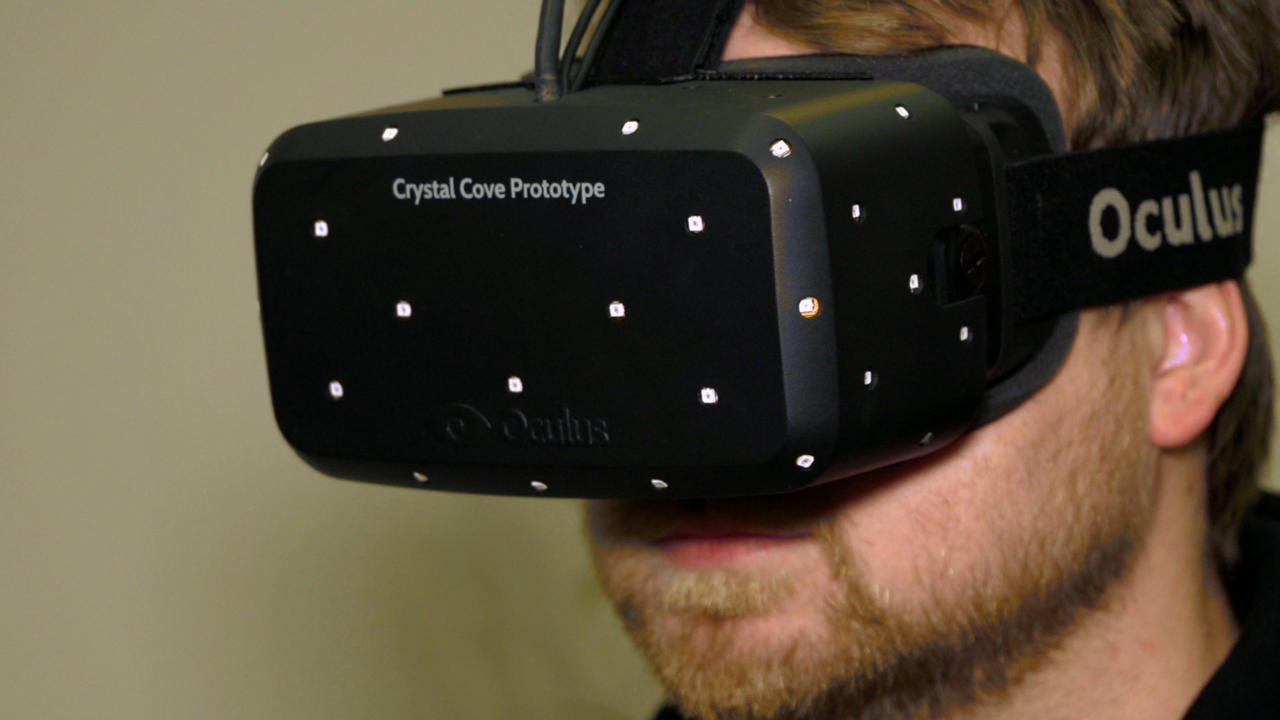
How do you develop a game that will allow players on VR and non-VR versions to play together?
"If you have VR in mind and then make the game from ground up that way, it's a lot easier to go the other way around. Especially with the genre that we're working on," Chung said.
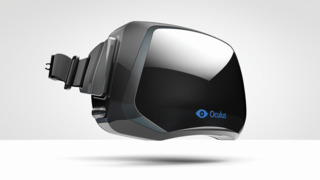
"The few games that are being made for VR from the ground up, [the developers] have a game that's specifically focused on highlighting something in VR. Whereas we're taking a very different approach where we're making a game, where we're looking at what aspects in VR we could take advantage of to really make the experience in VR a lot better. So the person who's playing on the non-VR version, we're not diminishing that experience in any way." Blumel added.
For Reload, the project is less about showing off VR technology but more about integrating the technology with the game. Blumel said, "It's not like this one thing or these few things are really cool in VR, and we're going to make our game around these few cool things and make a game out of that. It's more like we're making this type of game, and what are the things in VR that we can draw upon to make that experience a lot more immersive and a lot more fun."
When can we expect to see it?
"We're planning on hitting our first playable build towards the end of the year," Chung said. Post-release, he cited the experience gained from transition to making core games to social games inspired the approach that Reload would adopt. "Move quick, launch small, and keep building on top of it… we're going to try and iterate as fast as we can" he said. The studio plans to launch the game's Alpha next year, and is aiming for a full launch at the end of 2015.
Got a news tip or want to contact us directly? Email news@gamespot.com
Join the conversation